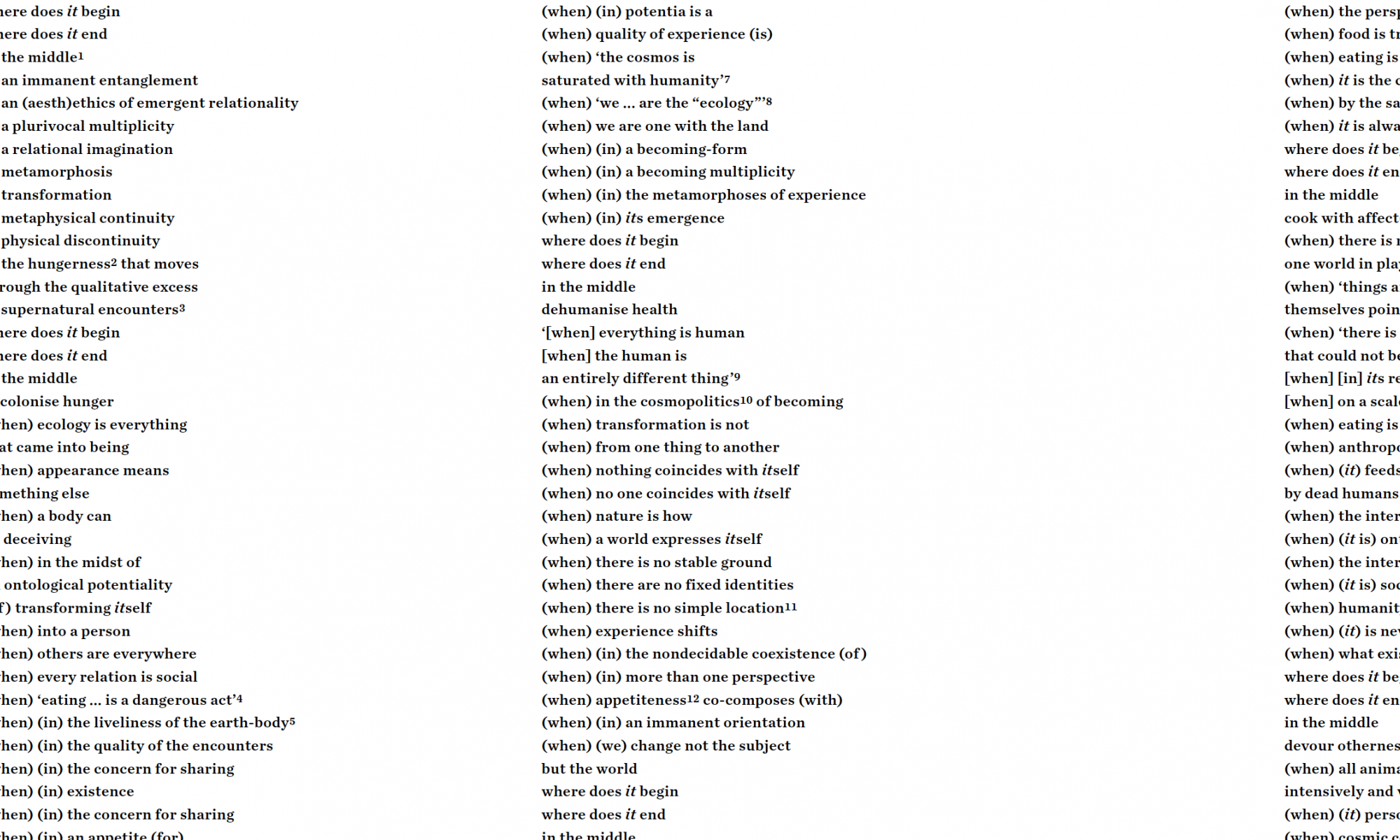eat (it)
1. As in Amerindian cosmologies, cannibal metaphysics are lurking at every encounter. The visible shape of a body may be deceptive and a human appearance may be concealing an animal-affect. Moving from there and from the perspectival relation in which nature is the form of the third person, this piece builds itself around the similarity of the sounds of the impersonal pronoun ‘it’ (the form of the other in multinaturalism) and the verb ‘eat’ (whose phonetic transcription in Australian spelling is precisely ‘it’). It also approaches the transversality between eating, multinaturalism and otherness by juggling with the exchangeability of these terms around the relational pointer it and by following the multinaturalist idea that the origins of perspectival differences depend not on self-perception but on the gaze of the other, so that this piece is undeniably about eating and the cosmopolitics of becoming related to it, but only by virtue of it being about the cosmopolitics of becoming related to multinaturalism, as well as the cosmopolitics of becoming related to otherness. In this same sense, it experiments with immediated perspectives that are, as Amerindian perspectivism teaches us, exchangeable within multiple relational-positional constellations, which is to say that every perspectival (pro)position seeds the transformation of the piece from its own deictic position, so that the very encounter with the piece’s mobile shape and its multiple beginnings feeds the potential relationality of a form-in-the-making that enacts multiple ways of unmediated exchange, akin to Amazonian cannibalism. Where does it begin? Where does it end?
In the middle, in the condition(al)s, ‘in Amazonia and elsewhere’ (see Eduardo Viveiros de Castro, The Relative Native: Essays on Indigenous Conceptual Worlds, HAU Books, Chicago, 2015, p. 189).

